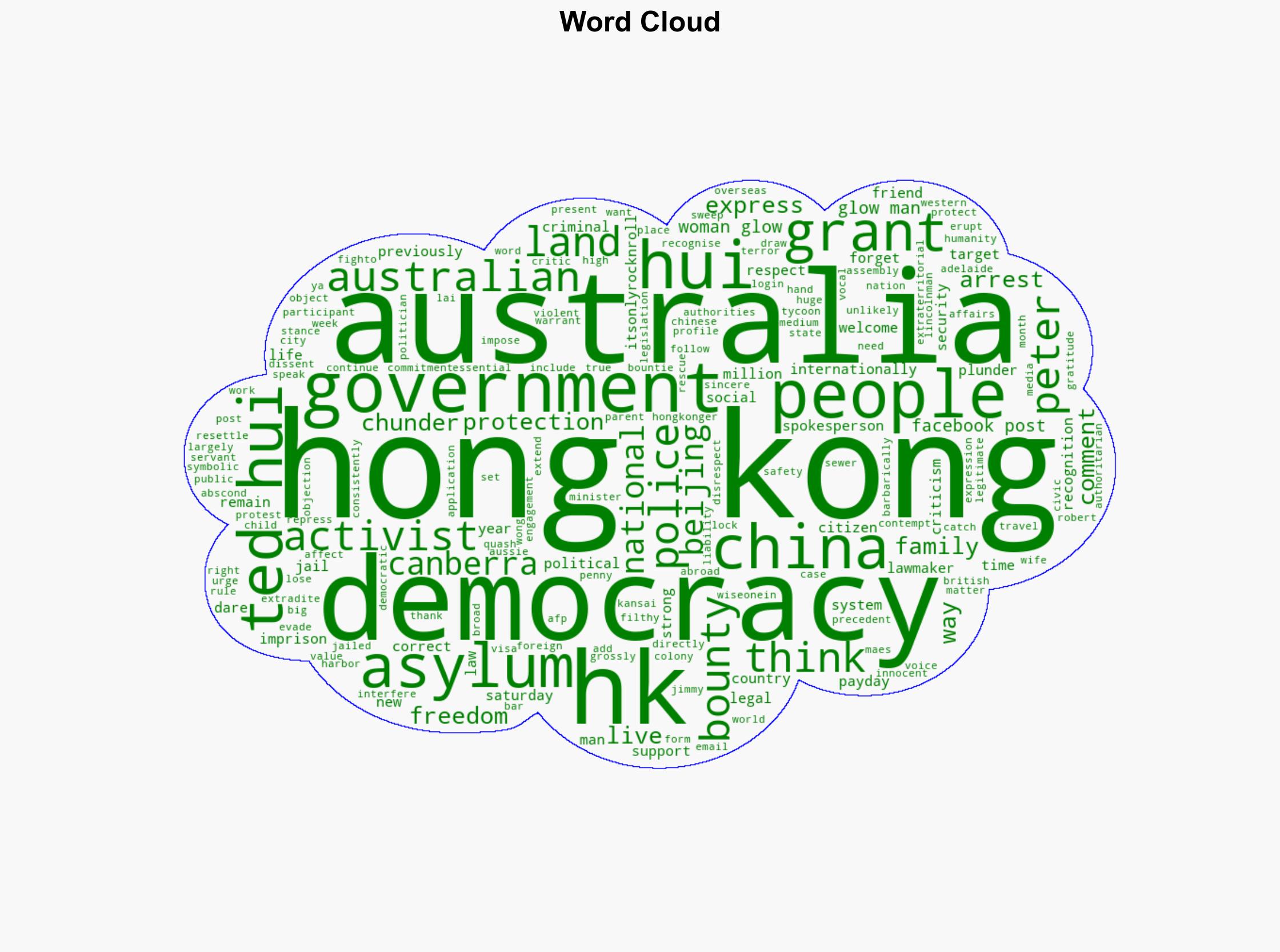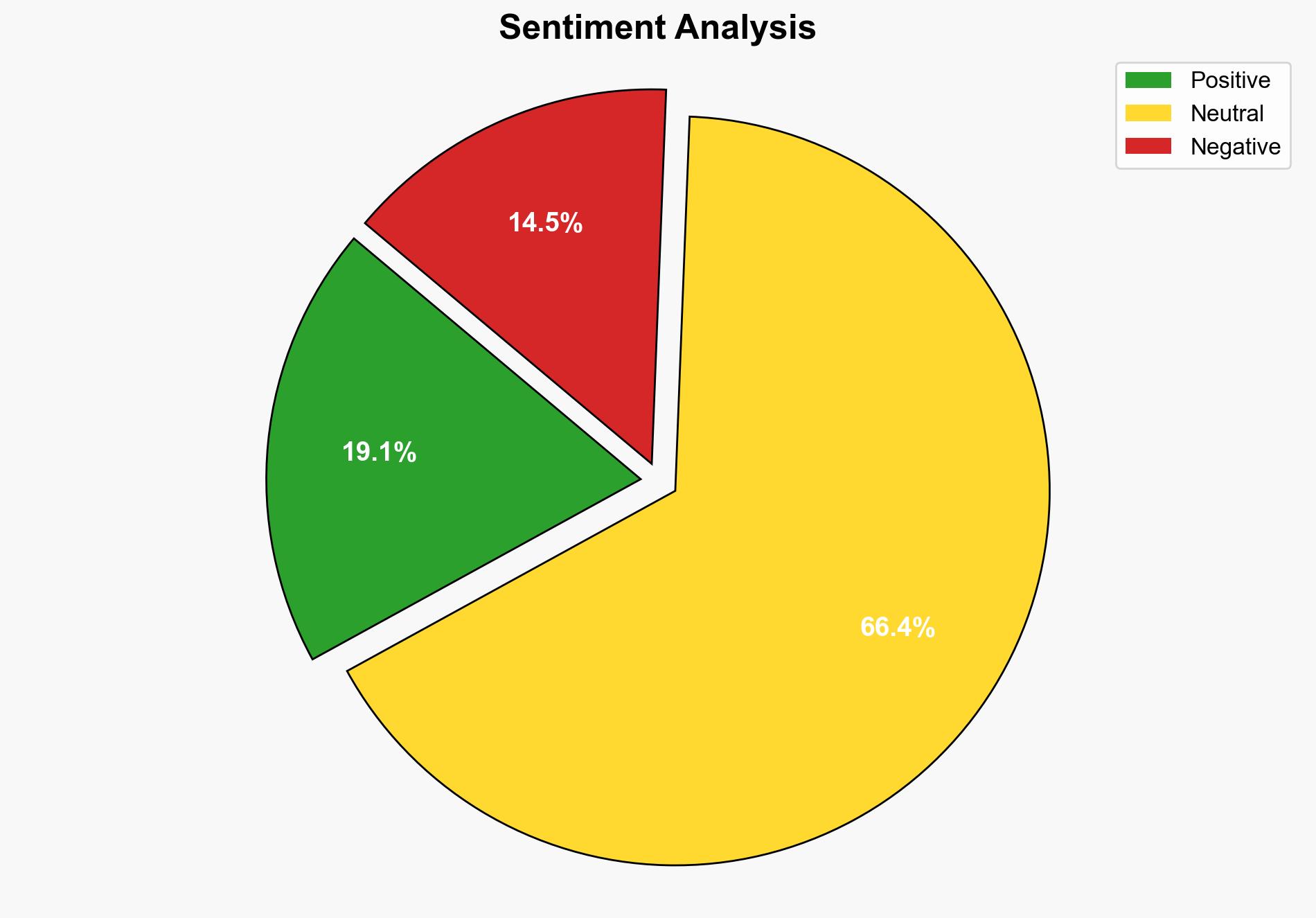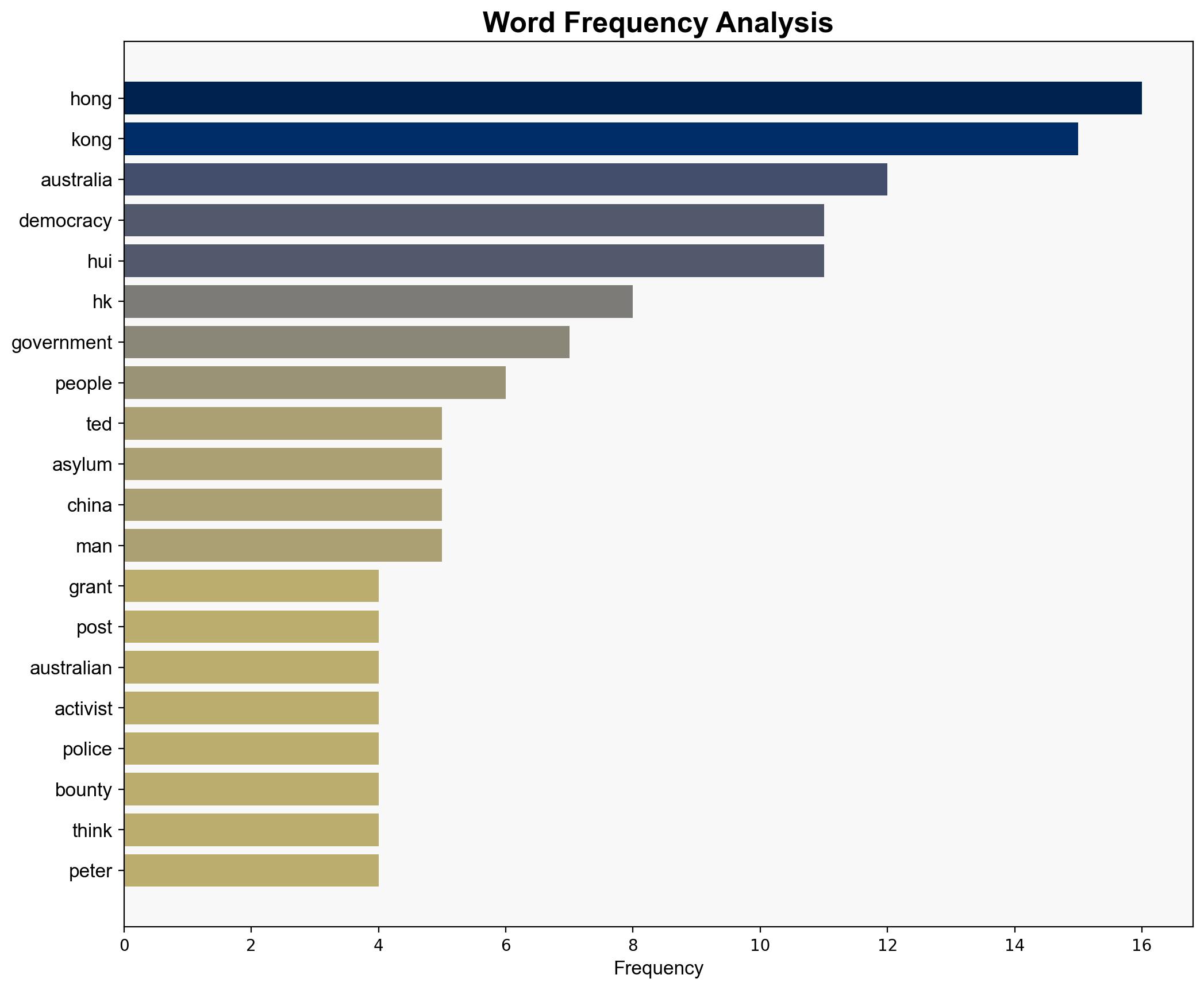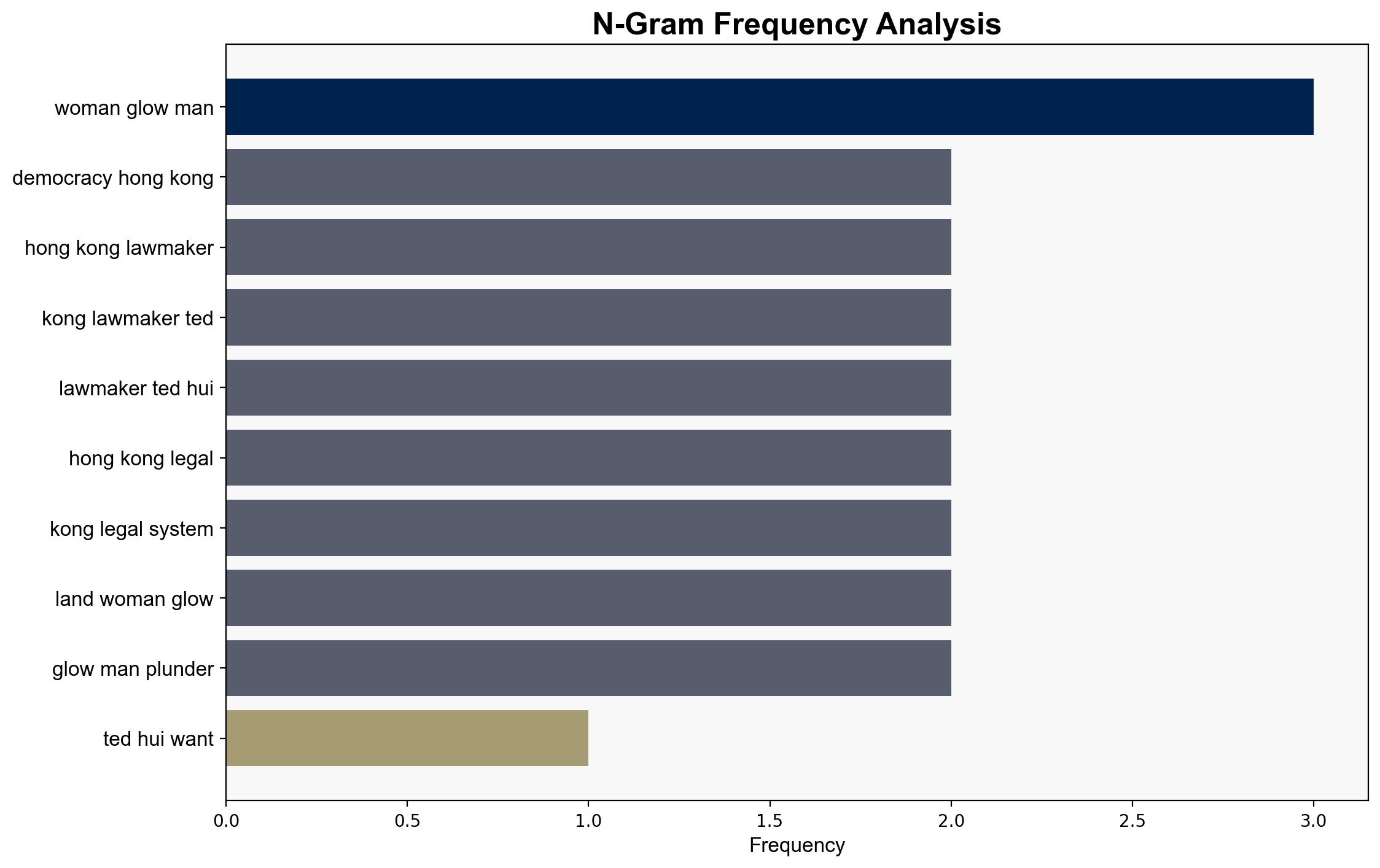Former pro-democracy Hong Kong lawmaker granted asylum in Australia – Japan Today
Published on: 2025-08-17
Intelligence Report: Former pro-democracy Hong Kong lawmaker granted asylum in Australia – Japan Today
1. BLUF (Bottom Line Up Front)
The most supported hypothesis is that Australia granted asylum to Ted Hui primarily as a political statement against China’s national security law and its implications for democracy in Hong Kong. This action aligns with Australia’s broader strategy to assert its stance on human rights and democratic values. Confidence level: High. Recommended action: Monitor China’s diplomatic response and prepare for potential retaliatory measures affecting bilateral relations.
2. Competing Hypotheses
1. **Hypothesis A**: Australia granted asylum to Ted Hui as a political maneuver to challenge China’s influence and assert its commitment to democratic values.
– **Supporting Evidence**: Australia’s history of vocal opposition to China’s national security law; previous objections to Hong Kong’s legal actions against activists.
– **Contradictory Evidence**: Potential economic repercussions from China, suggesting Australia might avoid such provocations unless strategically necessary.
2. **Hypothesis B**: The asylum grant is primarily a humanitarian gesture, focusing on the immediate protection of Hui and his family from political persecution.
– **Supporting Evidence**: Hui’s high-profile status as a pro-democracy activist and the risks he faces under Hong Kong’s national security law.
– **Contradictory Evidence**: The broader geopolitical context suggests that such decisions are rarely made solely on humanitarian grounds without considering political implications.
3. Key Assumptions and Red Flags
– **Assumptions**: Australia is willing to risk economic and diplomatic fallout with China for the sake of human rights advocacy. The decision is based on a calculated assessment of China’s likely response.
– **Red Flags**: Lack of explicit statements from Australia detailing the strategic rationale behind the asylum decision. Potential underestimation of China’s retaliatory capabilities.
– **Blind Spots**: The internal political dynamics within Australia that may influence foreign policy decisions, such as domestic public opinion on China.
4. Implications and Strategic Risks
– **Geopolitical**: Potential strain on Australia-China relations, impacting trade and diplomatic engagements.
– **Economic**: Risk of economic sanctions or trade restrictions from China as a form of retaliation.
– **Psychological**: Strengthening of pro-democracy sentiments globally, potentially inspiring similar actions by other countries.
– **Cascading Threats**: Escalation of tensions in the Asia-Pacific region, influencing alliances and regional stability.
5. Recommendations and Outlook
- Engage in diplomatic dialogue with China to mitigate potential fallout and clarify Australia’s stance on human rights.
- Strengthen alliances with other democratic nations to present a unified front on issues of political asylum and human rights.
- Scenario Projections:
- Best Case: Strengthened international support for Hong Kong activists without significant economic repercussions.
- Worst Case: Severe economic sanctions from China, leading to a downturn in bilateral trade.
- Most Likely: Diplomatic tensions with manageable economic impacts, with Australia maintaining its stance on human rights.
6. Key Individuals and Entities
– Ted Hui
– Penny Wong
– Jimmy Lai
7. Thematic Tags
national security threats, geopolitical strategy, human rights advocacy, regional diplomacy





